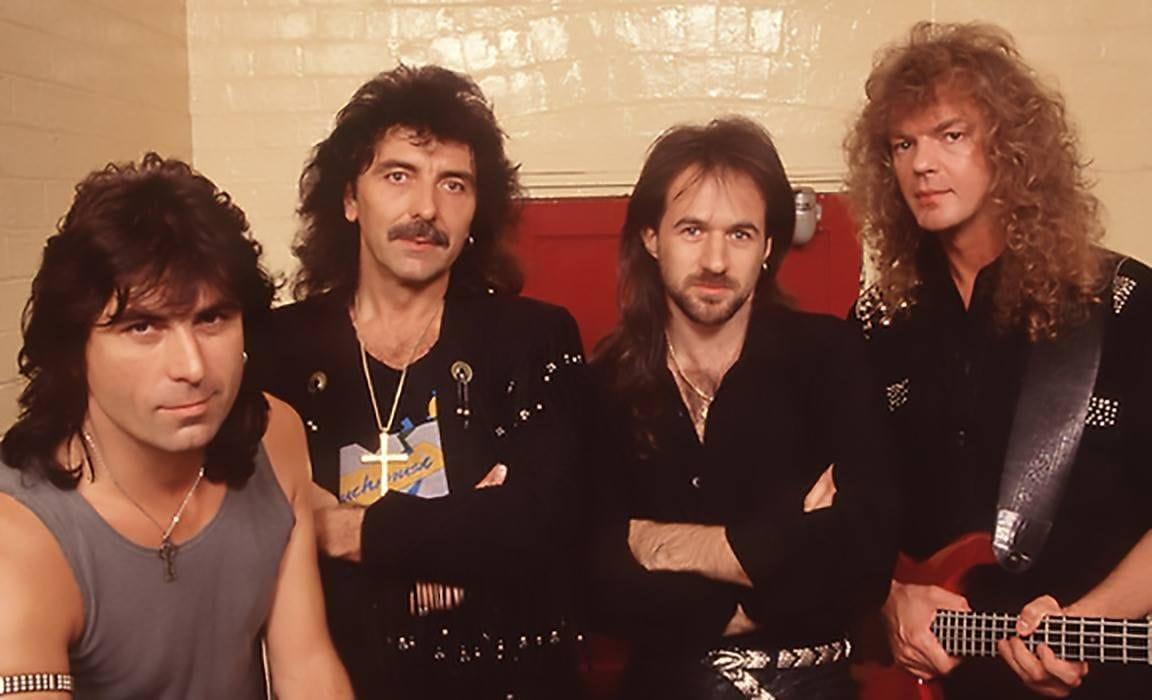Back in 1970, Black Sabbath released a legendary track titled “Iron Man.”
 Back in 1970, Black Sabbath released a legendary track titled “Iron Man.” Featured on their second studio album, *Paranoid*, the song has since become one of the band’s most iconic tracks. Written primarily by bassist Geezer Butler, “Iron Man” tells the story of a man who travels through time, witnesses the apocalypse, and is turned into a metal giant upon his return to the present. This transformation leads to his frustration and eventual desire for revenge against humanity.
Back in 1970, Black Sabbath released a legendary track titled “Iron Man.” Featured on their second studio album, *Paranoid*, the song has since become one of the band’s most iconic tracks. Written primarily by bassist Geezer Butler, “Iron Man” tells the story of a man who travels through time, witnesses the apocalypse, and is turned into a metal giant upon his return to the present. This transformation leads to his frustration and eventual desire for revenge against humanity.
The creation of “Iron Man” was influenced by the era’s fascination with science fiction, particularly during the space race. Butler’s lyrics, though often interpreted in various ways by fans, reflect themes of isolation and the consequences of technological advancement. The character in the song, despite his metallic exterior, retains human emotions and ultimately becomes a tragic figure, seeking vengeance for his plight.
Musically, “Iron Man” is characterized by Tony Iommi’s heavy, doom-laden guitar riffs, which set the tone for the entire track. The song’s opening, featuring a distorted voice proclaiming “I am Iron Man,” has become iconic. Drummer Bill Ward recalls the technical challenges of capturing the powerful sound they desired with the studio equipment available at the time, yet the final product has stood the test of time.
Ozzy Osbourne’s vocals bring an intense and haunting quality to the song, complementing the dark and foreboding music. His ability to convey the narrative’s emotion through his performance has been a critical element in the song’s lasting impact. Osbourne’s contribution to the melody and initial vocal lines laid the groundwork for Butler’s lyrical development, showcasing the collaborative nature of the band.
“Iron Man” has transcended its initial release, becoming a staple in popular culture. It has been featured in various films, television shows, and video games, most notably in the Marvel Cinematic Universe’s *Iron Man* films, where it introduced the song to a new generation of fans. This inclusion further solidified its status as a cultural icon.
Over the years, “Iron Man” has been covered by numerous artists across different genres, reflecting its wide-reaching influence. From heavy metal bands to more unconventional covers, the song’s core elements have proven adaptable and enduring. This versatility is a testament to the strength of the original composition and its relevance across decades.
The song’s success was initially modest, reaching number 52 on the Billboard Hot 100 in the United States. However, its influence has grown significantly over time, earning accolades such as a spot on Rolling Stone’s list of the 500 Greatest Songs of All Time and being recognized by VH1 as one of the greatest heavy metal songs ever.
In summary, “Iron Man” by Black Sabbath is not just a song but a cornerstone of heavy metal music. Its narrative depth, musical innovation, and cultural impact have ensured its place in the pantheon of rock legends, continuing to inspire and resonate with listeners worldwide.



